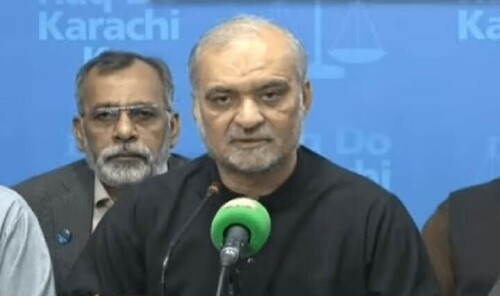HYDERABAD: The Hyderabad Chamber of Small Traders & Small Industry president Mohammad Farooq Shaikhani has lauded federal government’s initiative for crafting a corporate farming policy aimed at advancing Pakistan’s agriculture sector.
Mr Shaikhani said in a statement issued here on Monday that formulation of a National Seed Policy and enactment of Agriculture Development Authority Act were badly needed to facilitate the corporate farming.
He said that 90pc of landholders had small pieces of land measuring from five to 12 acres and expressed concerns over absence of statistics and required mechanism for ascertaining eligibility of subsidy for bona fide recipients under the new agriculture policy.
He feared that without data collection the policy might inadvertently favour big landowners thus neglecting smaller cultivators and perpetuating disparities.
He said that Pakistan’s significant agricultural potential with 40pc of cultivable land could address the nation’s food needs and advocated adoption of international farming technologies, including researched seeds, high-quality pesticides, urea and modern machinery to substantially increase crop yields.
He called for ensuring market prices for seeds, urea, pesticides and agricultural commodities, alongside providing subsidies to farmers and highlighted adverse impact of rising production costs and fluctuating crop prices on farmers’ livelihoods and government’s reputation, emphasising the need for immediate attention towards mitigating these challenges.
He stressed the need for bringing a green revolution to drive agricultural development in Pakistan, advocating strategic crop selection based on land suitability. With decline in international wheat prices, he said, a shift was needed for growing commodities that were imported like palm oil.
Mr Shaikhani recommended a halt to sugar cane cultivation due to its being high delta crop, and redirecting resources towards cultivating other valuable food crops, including cotton. It was a proactive measure, he said.
He said that Pakistan’s position as the seventh largest agricultural nation globally, drawing attention to a planning and development ministry report which revealed that 24pc of Pakistan’s population approximately accounted for 55m individuals who lived below poverty line.
He said that 29pc Pakistanis suffered from undernourishment, 40pc among them children. Pakistan’s human development index stood at 0.544, ranking 161 out of 192 countries while its placement at 102 out of 126 countries in Global Hunger Index highlighted the need for policy reforms. These statistics indicated disconnect between policy formulation and ground realities, showing systemic bias that favoured the elite, he said.
He proposed that policies including agriculture development policy be crafted and executed at state level in order to emphasise their stability and credibility among international organisations. By decentralising policy-making, continuity could be ensured, independent of changes in government leadership, he said.
Published in Dawn, March 19th, 2024











































Dear visitor, the comments section is undergoing an overhaul and will return soon.